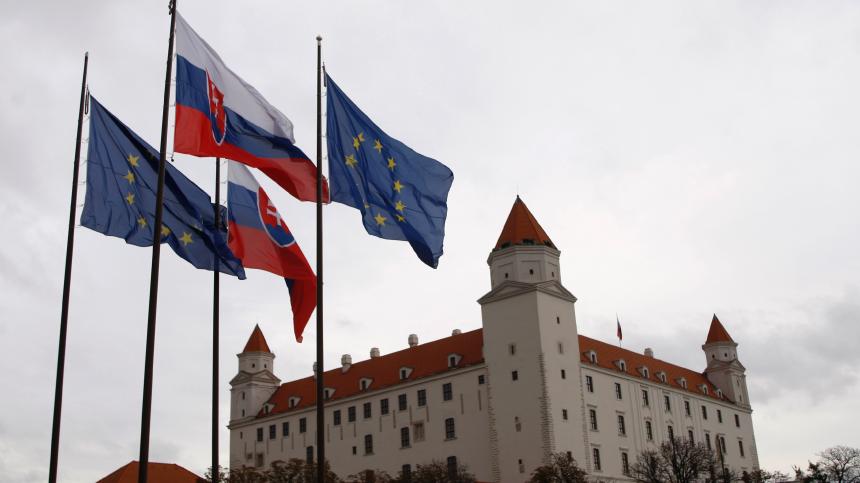Is it worth taking a vacation? How much do you get for the maternity leave? In every modern state social systems protect you at various life situations, compensate health problems and provide social benefits. In upcoming period we will compare them with Germany, Austria, Netherlands and Great Britain. Do you know what benefits does Slovakia offer to you?
Overtime work
Employee can´t work overtime indefinitely whenever his employer asks him or whenever he agrees to do so. Employee may work maximum for 8 hours overtime within one working week. Also only in period of 4 following calendar months. Employee may work for maximum of 150 hours overtime per year. More than 150 hours, he / she may work only if he/she agrees, but no more than 400 hours per year.
Work at weekends
Employees on permanent contract or temporary work agreement are entitled to extra payment for work on Saturdays and Sundays. From 1 May 2019 the bonus for work on Saturday is set at 50% of the minimum wage per hour, for work on Sunday at 100% of the minimum wage per hour.
Work at night
From 1 May 2019 extra payment for work at night is set at 40% of the minimum wage per hour (1,196 €), if the employee is performing a high-risk job, the bonus is 50% of the minimum wage per hour (bonus of 1,495 €).
Holiday
The basic holiday period is at least 4 weeks. An employee who has reached the age 33 by the end of the calendar year concerned, is entitled to 5 weeks of holiday. From 2020, those who have not yet reached the age of 33, but who take care of the child on a permanent basis are also entitled to 5 weeks of holiday. The entitlement to annual leave shall be payable to an employee whose employment relationship with one employer has been continuous throughout the calendar year and who has worked on that employment for at least 60 days per calendar year. The entitlement to the aliquot part of annual leave shall be for each full calendar month of continuous employment of the same employment relationship. It is calculated as 1/12 of annual leave * 20 days of holiday * number of worked months.
Annual wage suppliment
An important condition for exempting the 13th salary paid in June is that the amount must be at least equal to the employee’s average monthly earnings. Employment relationship between employee and employer must be at least 24 months continuously by 30 April of the calendar year concerned. To be entitled for 14th salary, employment relationship between employee and employer must be at least 48 months continuously by 31 October of the relevant calendar year. The employer may or may not provide it at any amount.
Sick leave
An employee may be recognized as temporarily incapable of work because of illness or accident or quarantine. The employer pays the first 10 days of income compensation, from the 11th day it is paid by the social insurance company. About the person’s temporary sick leave decides his general practitioner.
An employee is entitled to compensation for income during a temporary sick leave in the amount of:
- 25% of the daily brutto salary- from 1 to 3 days of the temporary sick leave,
- 55% of the daily brutto salary – from the 4th to the 10th day of the temporary sick leave,
- 55% of the daily brutto salary is paid by the Social Insurance Agency – from the 11th day of the temporary sick leave.
Social benefits
The parent is entitled to state social benefits – a tax benefit from the State if it meets the income-related conditions. Parental benefits related to the parent’s earned income include:
- maternity benefit – paid by the Social Insurance Agency
- childcare allowance – paid by the Labort Office, Social Affairs and Family
- child tax bonus – paid by the employer, tax administrator (tax office)
Payrate for working during bank holidays
The holiday bonus is 100% of the employee’s average earnings. If the employee is remunerated by a minimum wage, the holiday pay will be EUR 2,989 / hour.
Maternity leave
A woman is entitled to maternity leave for 34 weeks after working 270 days before giving birth. A single mother is entitled to 37 weeks of maternity leave, a mother of twins up to 39 weeks (up to 43 weeks ). A woman who is born a dead child can stay on maternity leave for a maximum of 14 weeks. The European Commission has come up with a proposal to further improve the work-life balance. The amount of maternity benefit is 75% of the daily income per calendar day.
Retirement
The guaranteed retirement for 30 worked years is 33% of the gross average salary from 2 years ago. For 31 to 39 worked years retirement increases by 0.02 times of the minimum salary and from 40 worked years by 0.03 times. This is a significant increase in the minimum pension compared to previous years. If the minimum old-age retirement wasn´ guaranteed, you would have to earn approximately 80% of your average salary during your working age.
Food allowance
Employees are entitled to receive food allowance. The employer can provide meals in the company canteen or in the form of meal vouchers. Entitlement to meal vouchers is granted to an employee on pernament contract who is at work for more than 4 hours (you will not receive meal allowance if you have 4 hours working time). If the employee is working longer than 11 hours, it is recommended to contribute to the second hot meal. However, this is not the employer’s duty. Employee is entitled to a food allowance of at least 3.83 Eur which is 75% of EUR 5.10. The rest is paid by the employee himself.
Family member sick leave
Family member sick leave is a sickness benefit provided for the personal and full-time treatment of a sick child, a sick spouse, a sick wife, a sick parent or a sick parent of a spouse. It is also provided for personal and all-day care for a healthy child under the age of 10. The entitlement to family member sick leave lasts no more than 10 calendar days. Sick leave can last longer but wihout any income compensation.







